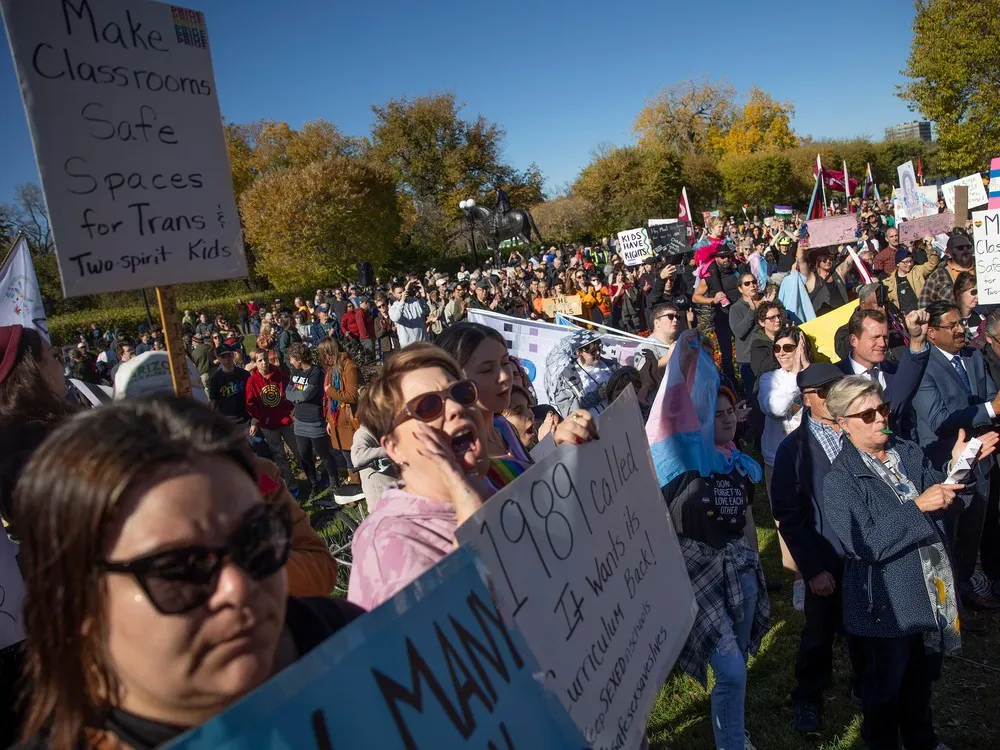Latest News
- Four years after Indigenous woman dies in Niagara Hospital, family still waiting for coroner's investigation
- Lawyer: British Columbia RCMP officer should be fired or resign immediately
- B.C. government looks to offer loan guarantees to property owners in Cowichan Aboriginal title area
- Uber driver's account in Toronto suddenly deactivated; only source of income cut off after 'duplicate account' claim
- TDSB education chief fired by provincial supervisor; sweeping changes at Canada's largest education board
Latest Ads
-
Jasmine Jewel
Call
-
Omidan group
Call
-
Amir Madanpour
Call
-
Dimo studio
Call
-
Yorkacademy
Call
-
Maryambagheri
Call
-
Shishlix Restaurant
Call

Does Saskatchewan's Parents' Bill of Rights help parents or misguide them?
This Parents' Bill of Rights in Saskatchewan, enacted through Section 33 of the Canadian Constitution Act, is the first law in Canada that can restrict gender identity in schools. However, the debate on this issue remains intense, and a legal challenge that was previously raised is still ongoing.
Dustin Mathis, a father of two in Swift Current, Saskatchewan, who supports this law, says, "Parental rights to me mean having the ability to create a safe environment for the growth of my children. One of the most important aspects is that I have control over what my children hear and what they learn."
However, others believe that this law does more harm than good.
Linay Hix, a mother in Regina whose 16-year-old child is non-binary, says: "The problem is that this law allows everything bad to happen within the family unit — the need for control and coercion to impose traditions."
The discussion is divided between those who say that this law is about ensuring parental involvement in the formative years of a child and those who are concerned that this law may harm children and confuse parents about their actual rights.
A contentious part of this law, which has sparked the most controversy, is compelling school staff to obtain parental consent before using the new name or gender identity of a student. The Saskatchewan law follows a similar policy in New Brunswick.
Policies are more flexible compared to laws, which require a legislative process for amendments. When New Brunswick amended its Policy 713 to align with a similar law, several school boards wrote their policies to effectively nullify the changes. Several boards received "remedial action" letters, but most have remained steadfast in their policies.
Students are in a state of uncertainty while a legal battle over New Brunswick's gender identity policy is ongoing.
The Alberta government is considering a policy on how schools should deal with students of diverse genders.
Before the Saskatchewan policy became law, critics raised legal concerns, claiming that this policy contradicts Sections 7 and 15 of the Canadian Charter of Rights and Freedoms. These sections include freedom, personal security, and equality rights.
A judge at the Court of Queen's Bench in Regina issued an interim order to suspend the policy pending a legal challenge, stating that the policy may cause "irreparable harm" to students who cannot use their gender identity in school.
Suggested Content
Latest Blog
Login first to rate.
Express your opinion
Login first to submit a comment.
No comments yet.


































